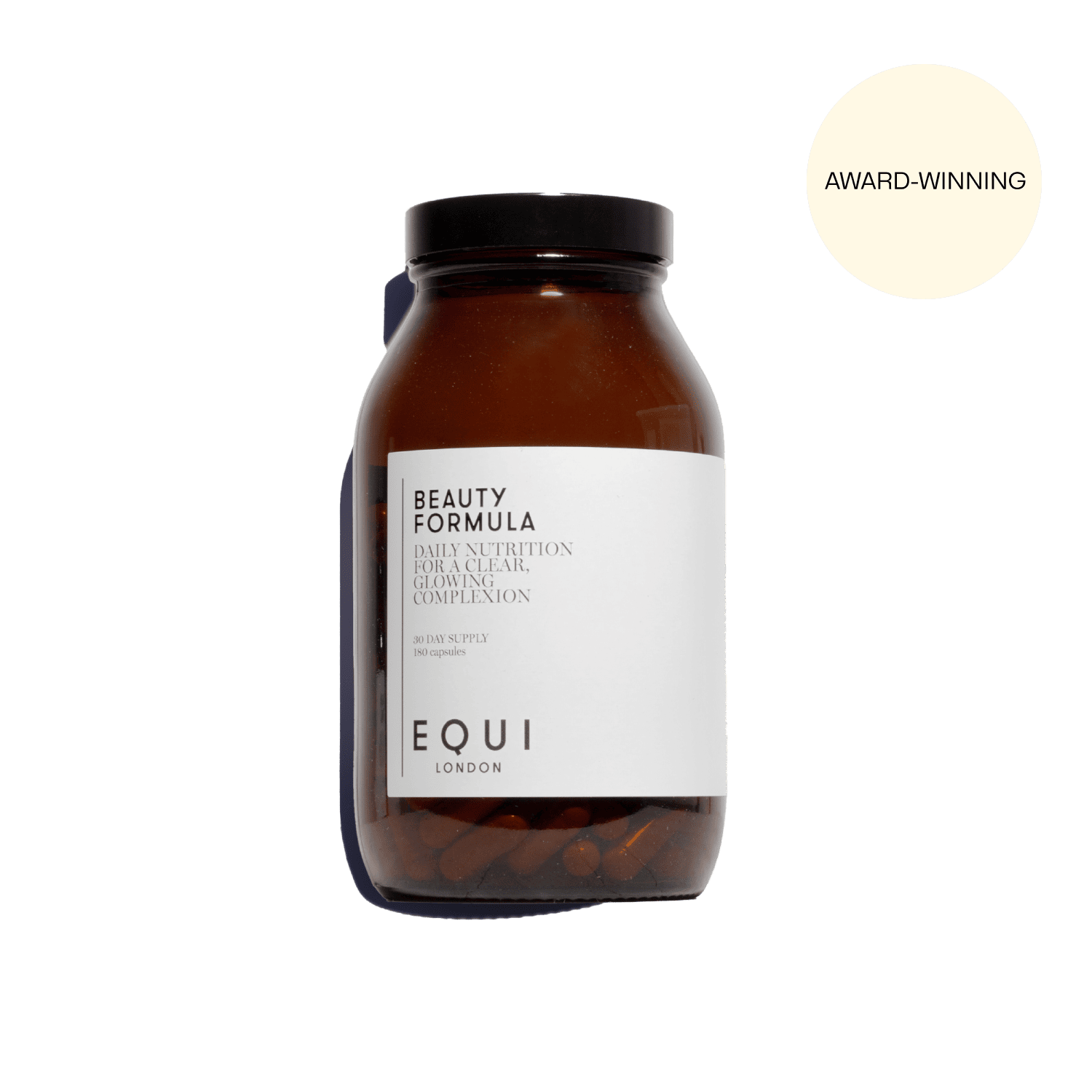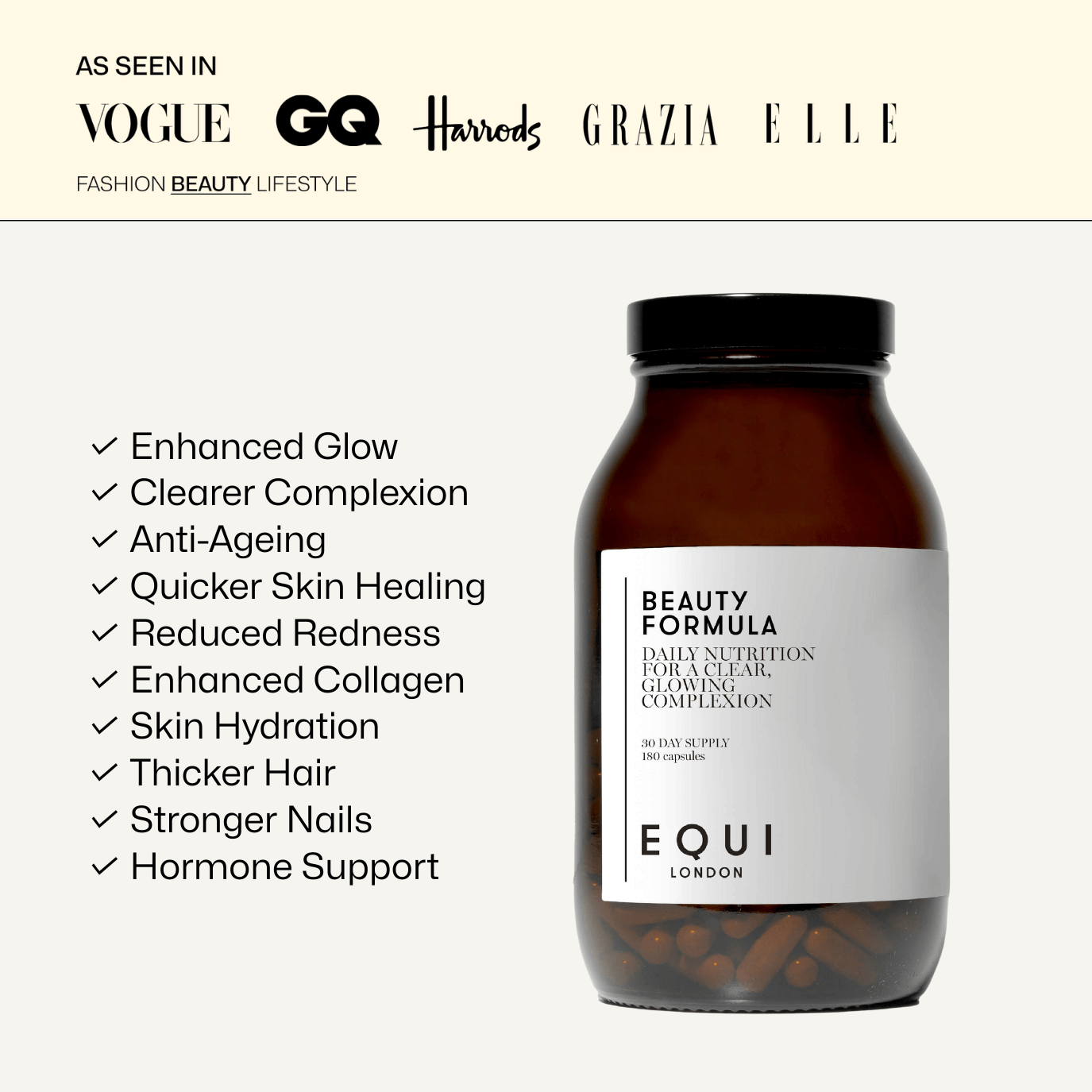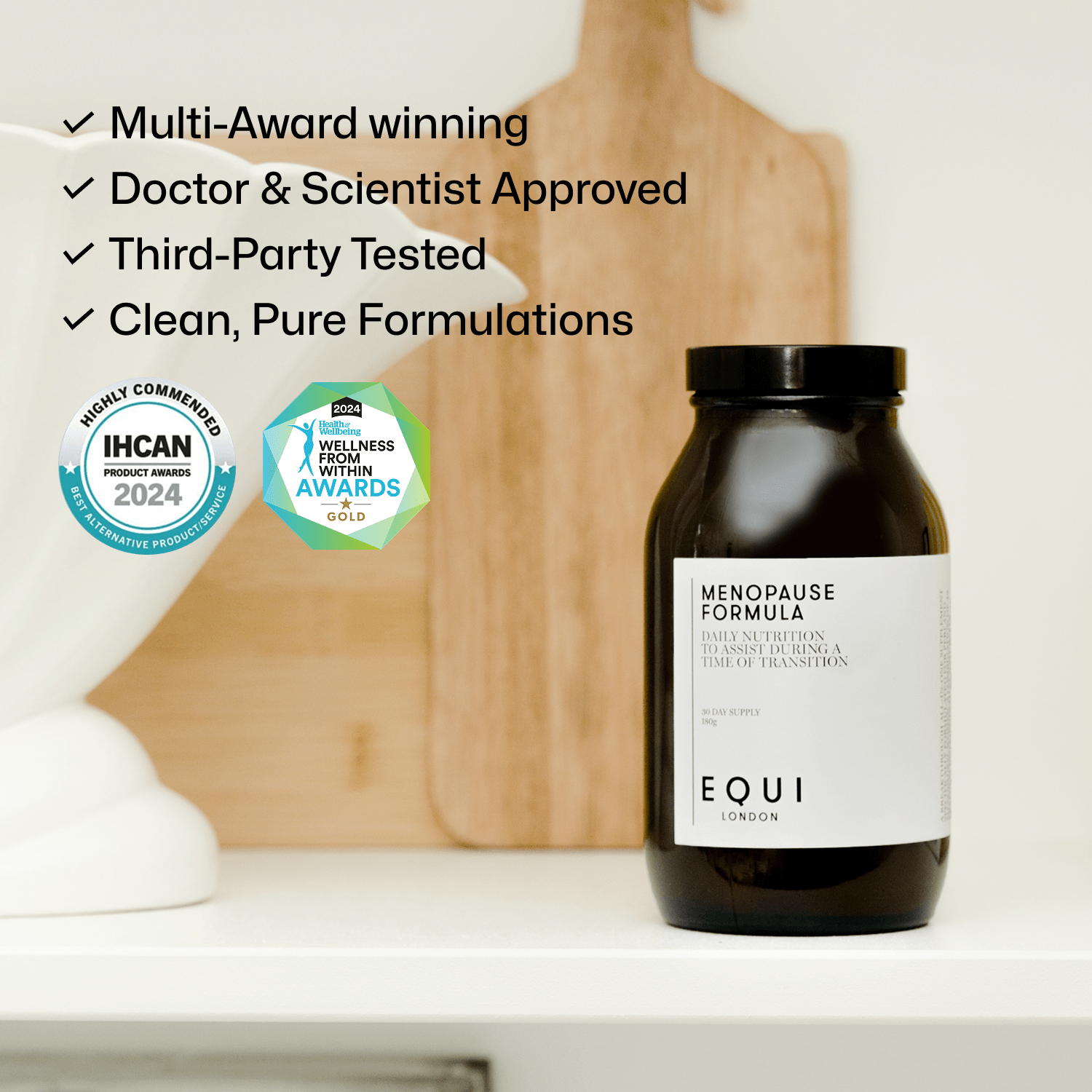In light of World Digestive Health Day’s theme this year, ‘A Healthy Gut From The Start’, we asked Fertility Nutritionist Jen Walpole to explain the Maternal Microbiome. Here, she explains it’s importance not just during pregnancy but also ahead of pregnancy, as part of your preconception prep.
What is the maternal microbiome?
The maternal microbiome is the collection of bacteria, fungi, and other microorganisms that live in the mother's gut, vagina, and skin. These microorganisms play an important role in the mother's health, and they can also affect the health of her baby. A healthy maternal microbiome can help to improve fertility, reduce the risk of complications during pregnancy, and promote the health of the baby. For example, one study found that women with a healthy gut microbiome were more likely to get pregnant than women with an unhealthy gut microbiome (1).
What are the benefits of supporting the maternal microbiome?
The maternal microbiome plays an important role prenatally and during pregnancy. A healthy microbiome can help to improve fertility, reduce the risk of complications during pregnancy, and promote the health of the baby.
1. Supports Fertility
The vaginal microbiome is made up of various bacterial species that play a crucial role in maintaining reproductive health in women. Recent studies have suggested that the microbiome has a direct connection with fertility, here’s how:
Maintains a healthy pH level - The pH level of the vagina is critical to fertility. A healthy vaginal pH level is slightly acidic, between 3.8 and 4.5. An imbalance in pH level can lead to bacterial overgrowth, which can cause inflammation and infection. The vaginal microbiome plays a vital role in maintaining the right pH balance. Studies have shown that certain bacterial strains in the microbiome produce lactic acid, which helps to keep the vaginal pH level low and prevents the growth of harmful bacteria (2).
Reduces risk of bacterial infections - Bacterial infections in the reproductive tract can lead to infertility due to damage to the uterus, fallopian tubes, or ovaries. The microbiome acts as a protective barrier against harmful pathogens that can cause infections. One study found that women with a healthy vaginal microbiome were less likely to suffer from bacterial vaginosis, a condition that increases the risk of infertility (3).
Increases production of cervical mucus - Cervical mucus is essential for fertility, as it helps to transport sperm to the egg. The vaginal microbiome produces substances that stimulate its production. Researchers have found that women with a healthy microbiome had higher levels of cervical mucus, leading to increased fertility (4).
Enhances overall reproductive health: The microorganisms in the vaginal microbiome perform many critical functions, such as nutrient uptake, immune function, and hormone production, which contribute to overall reproductive health. One study found that women with a healthy vaginal microbiome were more likely to conceive naturally and have successful pregnancies (5).
2. Reduced Risk of Allergies
The maternal microbiome can play a critical role in reducing the risk of allergies in their children. This is because the gut microbiome can influence the development of the immune system in the foetus and newborn, and a healthy immune system can help protect against allergies. Several studies have explored the link between the maternal microbiome and the risk of allergies in offspring. One study found that pregnant women with high levels of the beneficial bacteria Lactobacillus and Bifidobacterium were less likely to have children with eczema, a common allergic skin condition (6). Another study found that children born to mothers with low levels of certain bacterial strains were at a higher risk of developing eczema and food allergies (7). Other research has shown that the composition of the maternal microbiome can affect the development of the infant gut microbiome, which is also associated with a lower risk of allergies. For example, one study found that breast milk from mothers with a high diversity of bacteria was associated with a more diverse infant gut microbiome, which in turn was associated with a lower risk of allergies (8). Overall, these studies suggest that maintaining a healthy maternal microbiome can help reduce the risk of allergies in offspring.
3. Reduced Risk of Pregnancy Complications
Studies have shown that the microbiome influences several key aspects of reproductive health, from embryo implantation to labour and delivery. One way in which the maternal microbiome protects against pregnancy complications is by helping to maintain a healthy vaginal environment. The presence of certain beneficial bacteria, such as Lactobacillus, has been linked to a lower risk of preterm birth and other adverse outcomes. One study found that pregnant women with a lower diversity of vaginal microbiota were more likely to develop BV, which has been associated with preterm birth, low birth weight, and other serious complications (9). Another way in which the maternal microbiome may reduce the risk of pregnancy complications is by supporting the immune system. The presence of certain microbes has been shown to enhance the immune response, which may help to protect against infections and other harmful factors. A recent study found that women with a higher abundance of certain beneficial bacteria in their gut microbiome during pregnancy had a lower risk of developing gestational diabetes, a condition associated with several adverse outcomes (10). Finally, the maternal microbiome may also help to prevent pregnancy complications by influencing the baby’s development. Recent studies have shown that microorganisms can cross the placenta and interact with foetal tissues, which may impact a child’s risk of developing health problems later in life (11).
What nutrients can help to improve the maternal microbiome?
There are several nutrients that can help to improve the maternal microbiome. Whilst the studies highlight their benefits during pregnancy, we suggest including these before you think about trying to conceive, to help build the microbiome up. By taking care of your gut health before pregnancy, you can help to improve your chances of having a healthy pregnancy and a healthy baby.
Prebiotics:
Prebiotics are non-digestible food ingredients that feed the beneficial bacteria in the gut, promoting their growth. They are often found in foods such as fruits, vegetables, and whole grains. For example, onions, garlic, leeks, chives, oats, stewed apple, and artichokes. Prebiotics can also be taken as supplements. There is growing evidence that prebiotics can be supportive of the maternal microbiome. For example, a study found that babies born to mothers who took a prebiotic supplement during pregnancy had a healthier gut microbiome than babies born to mothers who did not take a supplement. The babies who were exposed to prebiotics also had lower levels of allergic symptoms (12). Therefore, this suggests that prebiotics may be beneficial for both the mother and the baby.
Probiotics:
Probiotics are live bacteria that are similar to the beneficial bacteria that live in the gut. They can help to improve gut health by increasing the number of beneficial bacteria and reducing the number of harmful bacteria. Probiotic foods include kefir, yoghurt, miso, tempeh, sauerkraut, and kimchi. If you are new to some of these, we suggest adding them in slowly, whilst your gut adjusts to the live bacteria. When taken as a dietary supplement, probiotics can help to restore the balance of bacteria in the gut and improve the composition of the vaginal microbiome, which can help to prevent infections. Studies have found that women who took a probiotic supplement during pregnancy were less likely to deliver preterm than women who did not take a probiotic supplement (13). Another study found that babies born to mothers who took a probiotic supplement during pregnancy had a lower risk of developing allergies and asthma by the age of two (14). This suggests that probiotics can be a safe and effective way to support the maternal microbiome ahead of and during pregnancy.
Wellness (Original) and Beauty Formula both contain prebiotics in the form of apple pectin and probiotics Lactobacillus sporogenes, Bifidobacterium bifidum and Bifidobacterium longhum. They are both great options to support the microbiome before trying to conceive. When you are trying to conceive, we suggest that you switch to Pregnancy Formula, which has all the key nutrients in optimal levels, needed to support you and baby during pregnancy and beyond.
Soluble and Insoluble Fibre:
Fibre is a type of carbohydrate that the body can’t digest. It travels to the intestines where it is fermented by bacteria, a process which produces short-chain fatty acids. SCFA’s are super beneficial for gut health and whilst all fibre sources will aid their production, certain foods are particularly beneficial. For example, potatoes and rice are two foods that when cooked and cooled down and eaten cold, help to increase the production of SCFA’s. We suggest preparing new potato salads or wild rice salads as side dishes to your summer BBQ’s. We also recommend consuming 30 plant-foods per week – you can read more about this here.
Glutamine:
An amino acid which protects the gut lining. It is found in many foods, including meat, poultry, fish, eggs, dairy products, and legumes. It is supportive of the maternal microbiome in several ways. Glutamine is a major fuel source for the cells that line the gut, protecting it from harmful bacteria. It helps to maintain the integrity of the gut lining and promotes the growth of beneficial bacteria in the gut. This is important because beneficial bacteria help to keep the gut healthy and prevent the growth of harmful bacteria.
Glutamine can be taken as a dietary supplement and is available within our much-loved Beauty Formula, alongside 47 other nutrients, which address the underlying causes of problem skin, including microbiome imbalances.
Vitamin D3:
There is some evidence to suggest that vitamin D3 may be supportive of the maternal microbiome. For example, one study found that women who had a low intake of vitamin D3 were more likely to have a disrupted gut microbiome. The study also found that women who took a vitamin D3 supplement during pregnancy had a healthier gut microbiome than women who did not take a supplement (15). Another study found that babies born to mothers who had a low intake of vitamin D3 were more likely to have allergies (16). Fatty fish, such as salmon, tuna, and mackerel, are good sources of vitamin D3. Other good sources of vitamin D3 include egg yolks, cheese, and fortified milk. Vitamin D3 is also available as a dietary supplement. When choosing a vitamin D3 supplement, it is important to choose one that is high quality and made from a reliable source.
All our formulas contain vitamin D3 and we ensured that Pregnancy Formula contained an optimal level at 1000IU per daily dose.
What else can help support the maternal microbiome before pregnancy?
Tone Your Vagus Nerve
The vagus nerve is the longest cranial nerve in the body. It runs from the brainstem to the abdomen and controls a variety of functions, including digestion, heart rate, and breathing. The vagus nerve also plays a role in regulating the gut microbiome. When the vagus nerve is healthy, it can help to promote the growth of beneficial bacteria in the gut and reduce the growth of harmful bacteria. Researchers believe that the vagus nerve may play a role in regulating the production of short-chain fatty acids (SCFAs) by the gut microbiota (17). Relaxation techniques, such as yoga, breathing exercises and meditation, can all help to support the health of the vagus nerve.
Getting Enough Sleep
There are several ways that sleep can support the maternal microbiome. First, sleep helps to regulate the production of gut hormones. Gut hormones are important for digestion, immunity, and overall health. When you don't get enough sleep, it can disrupt the production of these hormones, which can lead to issues. Sleep also helps to maintain the integrity of the gut lining. Lack of sleep can damage the gut lining, which can make it easier for harmful bacteria to enter the body. Sleep also helps to promote the growth of beneficial bacteria in the gut. To get enough sleep, establish a regular sleep schedule and stick to it as much as possible, even on weekends. A relaxing bedtime routine can work wonders and avoid exercising too close to bedtime. Do make sure your bedroom is dark, quiet, and cool too.
Minimise Antibiotic Use
Antibiotics are a lifesaver when used appropriately, but they can also have a negative impact on the gut microbiome. When antibiotics are used, they can kill off beneficial bacteria along with the harmful bacteria, which can lead to a disruption of the gut microbiome. If possible, only use antibiotics when they are necessary. When they are needed, take probiotics alongside antibiotics, to help to restore the balance of the gut microbiome.
References
-
Karlsson, M., Nielsen, J., Li, H., et al. (2015). The gut microbiota of women with recurrent implantation failure. Nature Medicine. 21(1), pp. 119-125.
-
Anahtar MN, Byrne EH, Doherty KE, et al. (2015). Identification of Bacteria and Characterization of Microbial Communities in the Vaginal Microbiome Associated with Low HIV Prevalence in African Women. PLOS ONE. 10(8): e0134409.
-
Bradshaw CS, Morton AN, Hocking J, et al. (2006). High recurrence rates of bacterial vaginosis over the course of 12 months after oral metronidazole therapy and factors associated with recurrence. J Infect Dis. 193(11), pp. 1478-1486.
-
Kyono K, Hashimoto T, Nagai Y, Sakuraba Y. (2003). Analysis of Lactobacillus Species in Cervicovaginal Mucus of Healthy and Infertile Japanese Women. Journal of Assisted Reproduction and Genetics.20(5), pp. 192-198.
-
Moreno I, Simon C. (2018). Relevance of assessing the uterine microbiota in infertility. Fertility and Sterility. 110(2). pp. 337-343.
-
Zhang L, Song H, Liu B, et al. (2018). Reduced colonization of fecal Clostridium coccoides/Eubacterium rectale species from gut microbiota is associated with enhanced allergic sensitization to peanut antigen in patients with atopic dermatitis. Nature Communications. 9(1), pp. 1-8.
-
Abrahamsson TR, Jakobsson HE, Andersson AF, et al. (2014). Low gut microbiota diversity in early infancy precedes asthma at school age. Clinical and Experimental Allergy. 44(6), pp. 842-850.
-
Cabrera-Rubio R, Collado MC, Laitinen K, Salminen S, Isolauri E, Mira A. (2016). The human milk microbiome changes over lactation and is shaped by maternal weight and mode of delivery. Nature. 534(7608), pp. 609-613.
-
Lamont, R. F., Keelan, J. A., Larsson, P. G., & Romero, R. (2018). The microbiota of the human vagina and preterm birth. BMC Pregnancy and Childbirth, 18(1), pp. 1-15.
-
Crusell, M. K. W., Hansen, T. H., Nielsen, T., Allin, K. H., Rühlemann, M. C., Damm, P., . . . Pedersen, O. (2018). Gestational diabetes is associated with change in the gut microbiota composition in third trimester of pregnancy and postpartum. Microbiome, 6(1), pp. 1-12.
-
Pithua, P., Patel, N., Fadlalla, M., & Singh, M. (2020). Maternal microbial exposure during pregnancy in relation to offspring asthma and allergic disease: A systematic review and meta-analysis. Journal of Allergy and Clinical Immunology, 145(2), pp. AB87.
-
Ruth E. Brown et al. (2018). The effect of prebiotic supplementation during pregnancy on the gut microbiota of the mother and infant: a randomized controlled trial. Pediatrics. 141(Suppl 2), pp. S84-S91.
-
C.G. Szajewska, et al. (2015). Effect of Lactobacillus rhamnosus GG on Preterm Birth: A Randomized Controlled Trial. PLOS One.
-
Palomares O, et al. (2017). Probiotics in pregnancy for prevention of allergic diseases in the offspring: a systematic review and meta-analysis of randomized controlled trials. Paediatrics. 139(2), e20162686.
-
Pamela C. Sears, Erica L. Sonnenburg & Justin Sonnenburg. (2017). Vitamin D and the gut microbiota: implications for health and disease. Gut. 66(10), pp. 1906-1917.
-
Ruth E. Brown, et al. (2018). Maternal vitamin D status and gut microbiota composition in pregnancy. Paediatrics.141(Suppl 2), pp. S92-S98.
-
Chen, J., Zhang, X., & Zhang, L. (2018). Vagal tone and the gut microbiome: a review. Front Psychol, 9, pp. 1932













